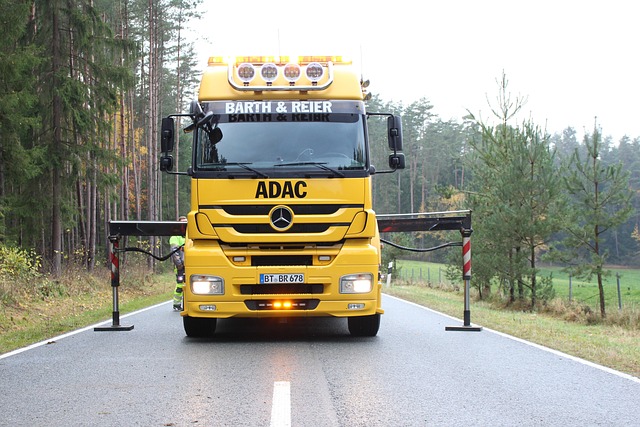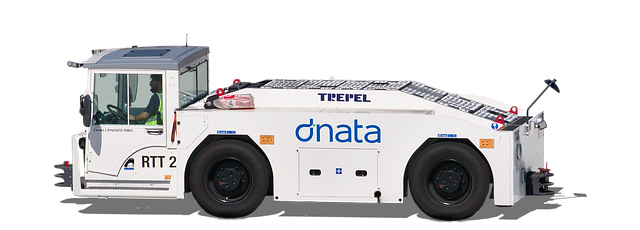Commercial towing contracts with a select towing business are crucial for specialized services like cargo and salvage yard towing. These agreements outline response times, pricing, liability, geographic coverage, insurance, and dispute resolution. Choosing a reliable service involves evaluating 24/7 support, fleet capacity, safety records, efficiency, and specialized hauling needs. Negotiating clear scope of work and transparent pricing structures ensures reliability during emergencies, with specific considerations for auto parts delivery and valuable cargo insurance. Legal compliance, including licenses, certifications, and adherence to regulations, is vital to mitigate risks and strengthen partnerships.
In the dynamic landscape of commercial transportation, efficient vehicle recovery is paramount. Understanding and negotiating commercial towing contracts is essential for businesses to ensure seamless operations and cost-effective solutions. This comprehensive guide delves into the intricacies of these agreements, offering insights on choosing the right towing business, contract components, term negotiation, legal compliance, and more. By mastering these aspects, you can optimize your towing arrangements and select the best-suited service provider.
- Understanding Commercial Towing Contracts
- Choosing the Right Towing Business
- Key Components of a Contract
- Negotiating Terms and Conditions
- Legal Implications and Compliance
Understanding Commercial Towing Contracts

Commercial towing contracts are essential agreements that outline the terms and conditions between a towing business and its clients, especially when dealing with specialized services like containerized cargo towing or auto salvage yard towing. Understanding these contracts is crucial for both parties to ensure smooth operations and fair practices. The select towing business must thoroughly review the contract, ensuring it covers all aspects of service provision, including response times, pricing structures, and liability clauses.
These agreements should clearly define the scope of work, detailing specific tasks like vehicle recovery, transportation, or on-site assistance. For local towing service contracts, specifying the geographic coverage area is vital to manage expectations. Additionally, contracts should address payment terms, insurance requirements, and dispute resolution mechanisms to provide a robust framework for managing potential issues during tow operations.
Choosing the Right Towing Business

When it comes to choosing the right towing business, especially for commercial needs, selecting a reliable and reputable service is paramount. It’s crucial to consider more than just the lowest quote; you’re essentially partnering with them for urgent roadside assistance and potentially life-saving heavy-duty towing services. Look for 24/7 roadside assistance membership benefits that offer peace of mind, knowing help is always within reach.
Consider their fleet and equipment, especially if you operate a large fleet or require specialized hauling. An affordable flatbed towing service might be appealing, but ensure they have the capacity to handle your specific requirements without compromising safety or efficiency. Read reviews, verify insurance, and check for certifications to make an informed decision that aligns with your business’s unique needs.
Key Components of a Contract

When considering a commercial towing contract, it’s crucial to understand the key components that ensure fairness and effective service for both parties. The first essential element is clarity in scope of work, detailing specific services like auto breakdown recovery near me, car accident towing, or other specialized needs. This includes specifications on vehicle types, distances traveled, and any additional services expected from the select towing company.
Another vital component is pricing structure, which should be transparent and detailed. This covers rates per mile, for emergency response, and any hidden fees. Ensuring these aspects are clearly outlined in your contract allows for seamless collaboration with a select towing business, fostering a reliable partnership that can provide essential services like car accident towing services when needed most.
Negotiating Terms and Conditions

When negotiating commercial towing contracts with a select towing business, it’s crucial to understand and agree on the terms and conditions that best suit your needs. This includes discussing service areas, response times, and pricing structures. Many businesses also require specific clauses related to insurance coverage, liability, and damage waiver, especially when dealing with valuable cargo or sensitive materials.
It’s important to include detailed provisions for auto parts towing and delivery, particularly if your business relies on timely transport of spare parts. Additionally, having towing and recovery specialists on standby for local emergency roadside assistance can significantly enhance operational continuity. Ensure the contract clearly outlines these services, their scope, and any associated costs to avoid misunderstandings later.
Legal Implications and Compliance

When engaging with a select towing business for commercial towing contracts, understanding the legal implications and compliance requirements is paramount. These agreements often involve intricate details related to liability, insurance coverage, and adherence to local regulations, especially when handling containerized cargo towing or transporting diverse types of vehicles. The select towing company must possess valid licenses and certifications to operate, ensuring they can meet the demands of the contract without causing legal repercussions.
Compliance goes beyond documentation; it involves fostering a culture of safety and accountability. Reputable auto transport services prioritize maintaining transparent records, adhering to weight limits, and ensuring proper vehicle securing techniques to prevent damage during transit. By upholding these standards, both parties in the commercial towing contract can mitigate risks, fostering a reliable partnership that benefits the entire logistics chain.
When navigating commercial towing contracts, understanding the key elements and legal implications is crucial. By choosing the right towing business and carefully negotiating terms, you can ensure a reliable and cost-effective service for your operations. Remember, the contract is the backbone of your agreement, so take the time to review and understand each component thoroughly. In summary, selecting a reputable towing company and mastering contract negotiations will prove beneficial in the long run, ensuring smooth business operations and legal compliance.
